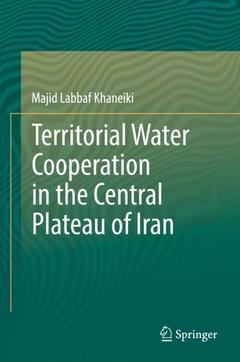Description
Territorial Water Cooperation in the Central Plateau of Iran, 1st ed. 2019
Author: Labbaf Khaneiki Majid
Language: English
Subjects for Territorial Water Cooperation in the Central Plateau of Iran:
52.74 €
In Print (Delivery period: 15 days).
Add to cartSupport: Print on demand
Description
/li>Contents
/li>Biography
/li>Comment
/li>
This book tries to answer the question how different communities in such an arid area as the Iranian central plateau could have shared their limited water resources in a perfect harmony and peace over the course of history. They invented some indigenous technologies as well as cooperative socio-economic systems in order to better adapt themselves to their harsh environment where the scarce water resources had to be rationed among the different communities as sustainably as possible. Those stories hold some lessons for us on how to adjust our needs to our geographical possibilities while living side by side with other people.
This work gives insight into the indigenous adaptation strategies through the territorial water cooperation, and describes how water can appear as a ground for cooperation. It explains the water supply systems and social aspects of water in central Iran. Topics include the territorial water cooperation, qanat?s, the traditional water management and sustainability, the socio-economic context, the sustainable management of shared aquifers system and more.Majid Labbaf Khaneiki, UNESCO-ICQHS (International Center on Qanats and Historic Hydraulic Structures), Yazd, Iran




